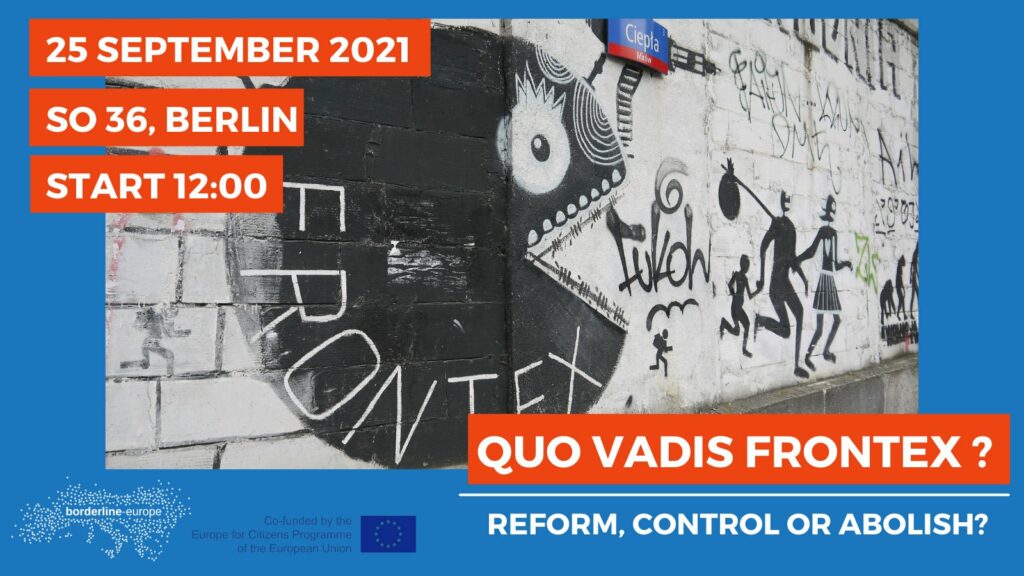
Panel discussions on the illegal activities of the EU border agency and its glaring control deficit.
Criticism of practices that violate human rights has accompanied the “European Border and Coast Guard Agency”, or “Frontex” – since its founding in 2004.
From its involvement in illegal pushbacks to its cooperation with the so called “Libyan Coast Guard”: in addition to the reports of those affected and eyewitnesses, extensive video material provides evidence of these practices. Finally, the EU Parliament created the Frontex Scrutiny Group to investigate. According to the group´s report, Frontex is aware of illegal activities in the Mediterranean, but does not intervene.
Moreover, the report states that agency head Fabrice Leggeri has removed incriminating material. With unparalleled cynicism, the agency now comments that the MEPs could not prove Frontex had engaged in illegal activities. However, this was not the task of the committee.
The lack of will to investigate or admit wrongdoing or to ensure basic human rights is part of the agency’s modus operandi. Frontex puts the protection of borders above the protection of people who are in danger.
Nevertheless, Leggeri always manages to wriggle out of the accusations, no sanctions have been imposed so far and the agency continues to expand. As per its regulation, Frontex is independent, its director may not take instructions from the member states or the Commission. This has created a legal vacuum for the agency.
At the same time, the power of the Frontex director continues to grow: planes and drones for aerial surveillance under its own control, a fleet of vehicles with surveillance technology, a new armed border force under Leggeri’s command.
Why is it so difficult to indict and prosecute the illegal activities of the agency? To whom is Frontex actually accountable? What are Leggeri’s new narratives and how can we debunk them?
We will discuss with activists and experts who are confronted with the practices of Frontex at various EU external borders and in different fields of work. Together we then want to show possibilities of civil resistance.
Panel 1: Current border practices of Frontex
Situation reports from the EU external borders, on the new mandate and technical equipment of the agency
Bérénice Gaudin (Sea-Watch Airborne)
Milena Zajovic (Are You Syrious/ Border Violence Monitoring Network)
Petra Molnar (Associate Director, Refugee Law Lab, York University)
Phevos Simeonidis (Disinfaux Collective)
Moderation: Vera Deleja-Hotko (investigative Journalistin, FragDenStaat), Matthias Monroy
Panel 2: Tactics of civil resistance against Frontex
On the interlocking of political, legal, and practical struggles against the agency’s activities and its new narratives
Luisa Izuzquiza (Frag den Staat)
Omer Shatz (Lecturer at Sciences Po Paris, Legal Director of Front-Lex)
Bernd Kasparek (bordermonitoring.eu)
Amandine Bach (Political Advisor, Frontex Scrutiny Group)
Moderation: Matija Vlatković (ECCHR), Niamh Ní Bhriain (TNI Amsterdam)
To attend in person, register here: https://www.so36.com/…/36144-tickets-quo-vadis-frontex…
For live stream visit: https://www.youtube.com/watch?v=O5iEpmQrxCU